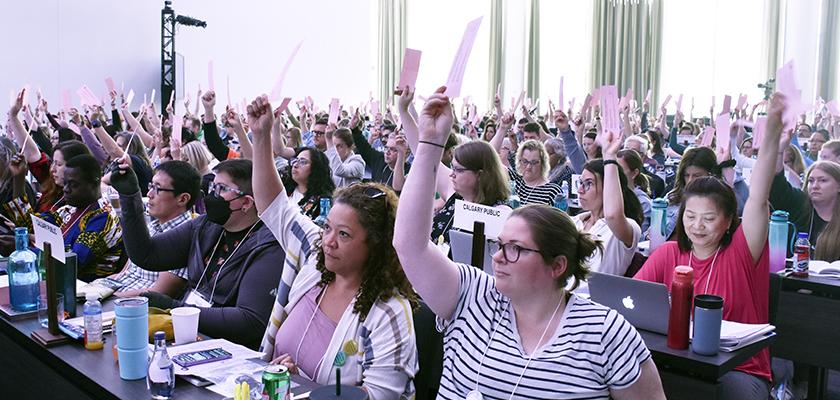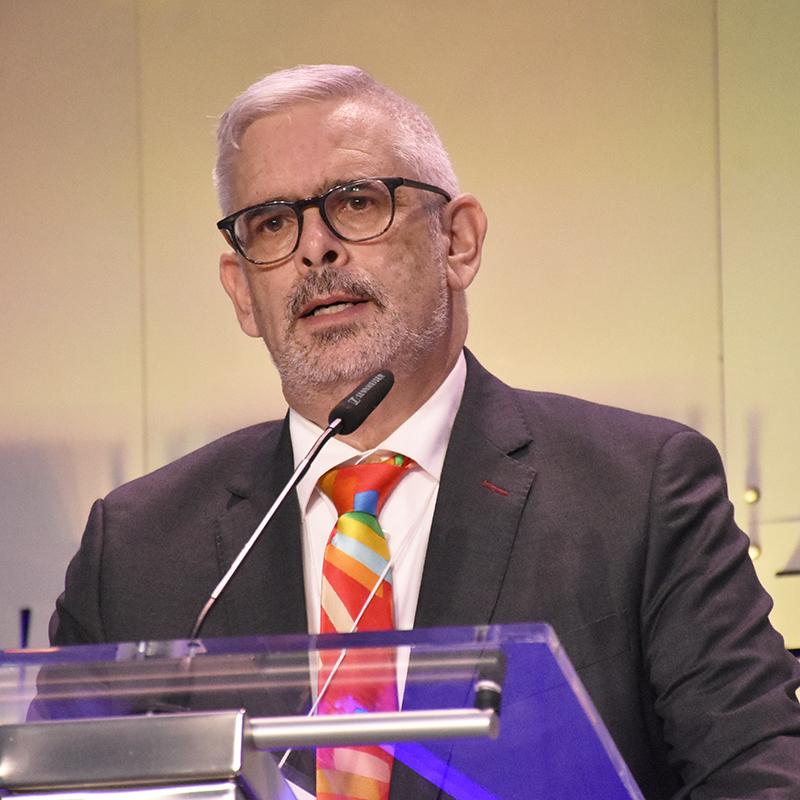Question: After attending the Annual Representative Assembly (ARA) on the Victoria Day weekend, I have a great idea about a program the Association should offer. How can I get it in front of the assembly next year?
Answer: The first thing to note is that ARA is really intended to be the place where general policy directions are set and the proposed budget approved. When it comes to creating specific programs, it’s the place you want to end up at rather than start from.
If your idea involves the expenditure of new money or the re-allocation of already budgeted funds, it is important that it be brought into the budget planning process as early as possible. As the chair of Finance Committee, Jenny Regal, explained in the budget presentation, this gets underway in September with the development of the “program prognosis” that captures program proposals for the next fiscal year. It is especially important that proposals with budget implications be included in the prognosis.
The prognosis is approved at the October meeting of Council and then drives costing and all budget-related activities going forward. This work culminates in the penultimate budget proposal distributed to locals in February, which then is finalized in the budget booklet presented at and (hopefully) approved by the Annual Representative Assembly.
The best way of having your program proposal included in the prognosis is to raise it directly with your district representative, through a relevant advisory committee of Council or with a staff officer in the relevant program area. They would be pleased to explore your proposal with you to better understand your objectives and how they might be achieved. It is always wise to start by defining the problem you are trying to solve or the outcome you are trying to achieve, and then draw upon the considerable expertise of staff to help identify a helpful programming response.
Generally, the earlier you can start on this, the better. If you are depending on advancing your proposal by means of a local resolution to ARA, it may be too late to action in the next school year. Local resolutions are received in mid-December, which is already well into the budget planning cycle. Those local resolutions that have budget implications are generally scheduled for debate, but because their passage often will require changes to be made to the budget as submitted to ARA, possibly including a fee increase, they may not gain traction.
If your proposal is outside the prognosis, all is not lost, although the path to realization can be a bit more challenging. Even if an initiative is not specifically authorized and budgeted in advance by ARA, the Association does have the capacity to respond to emerging challenges and unanticipated needs. Staff can action some more modest initiatives within the scope of their current assignments and responsibilities. Provincial Executive Council can find room in generally related, pre-existing program budget lines to cover activities and programs that may not have been included in the annual budget. Council can also authorize overexpenditures of existing lines or draw down the Special Emergency Fund and Defence and Advocacy Funds to pay for emergent projects that align with the funds’ respective mandated purpose.
Again, if you think the Association should be undertaking a project or activity on an emergent basis, the place to start is with a conversation with your district representative, a representative on a relevant committee of Council or with a staff member.
The Association is perhaps the most fundamentally democratic organization I have ever worked with, and members and representatives have opportunities to be engaged at every step of its policy and formation process. But democracy is by its very nature slow, and it takes time and collaborative effort to bring the spark of an idea through to approval, funding and ultimately implementation. My job is to facilitate the efforts of members, and I am always pleased to help you navigate the process. ❚
Questions for consideration in this column are welcome. Please address them to Dennis Theobald at dennis.theobald@ata.ab.ca.

ATA Executive Secretary
Read more
View the entire digital issue of the ATA News


